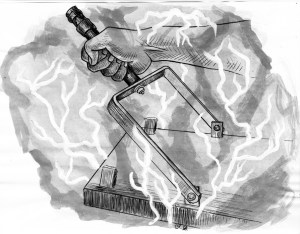
They did their best to suffocate their countries.
Egypt’s President Hosni Mubarak blacked out the Internet when nearly a million Egyptians demanded he step down from his 30-year rule. Conservative leader of Iran, President Mahmoud Ahmadinejad, clamped down on Twitter and Facebook after thousands of protestors used it to organize against him. Two of China’s largest news sites kept people from searching “Egypt,” earlier this week, in order to prevent people from getting ideas about how they might take out leader Hu Jintao.
Since the inception of the Internet, control over this worldwide communication tool has been a key way for dictatorships to maintain power. In the United States, the president, who already has the power to declare war as commander in chief, may also soon come to possess the ability to turn off the Internet.
Sen. Joe Lieberman’s Protecting Cyberspace as a Natural Asset Act, also known as the “kill bill,” gives the president the power to declare a “cyber emergency.”
If the bill passes the many committees of Congress, the president would have the absolute power to shut down the Internet.
Today, over 300 million people in the United States use the Internet for news and social networking. Without having access to information, our ability to make well-informed decisions — the very core of democracy — would be threatened.
Giving the president the power to turn off the Internet is a violation of our First Amendment rights, primarily the freedom of speech and the freedom of the press.
The language in the “kill bill” is strikingly similar to that of the Patriot Act, which has greatly reduced restrictions on law enforcement to search property, e-mails and phone lines. Obama recently extended this act, which claims to monitor Americans in the name of national security. The “kill bill” is another step in this frightening direction, where government control wipes out the rights of the people.
Furthermore, giving the president the power to strike down the Internet could have highly negative repercussions on U.S. companies and the entire economy.
The Chinese government’s attack on Google was certainly a bust to those holding Gmail accounts, but that incident does not warrant the president having the right to hijack the Internet.
The FBI and Internet providers have already adapted cyber security and spend millions a year on cyberspace security, so the U.S. federal government has no absolute need to award the president a new means of increasing security.
Our leaders know this. Just last Wednesday, the White House press secretary made it clear: “We support the universal rights of the Egyptian people, including the rights to freedom of expression, association and assembly.”
This statement is available for any one who has Internet access.

